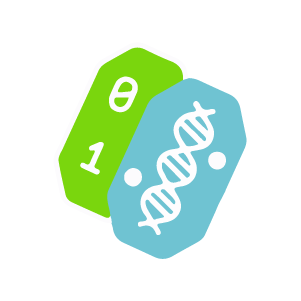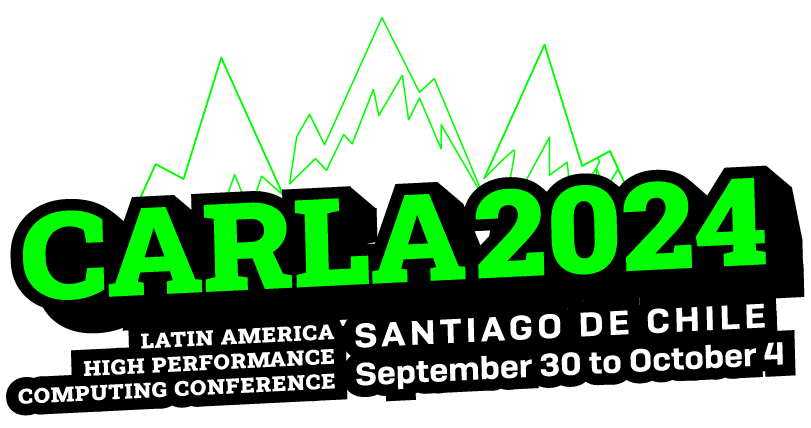Chair(s):
Kary Ocaña
National Laboratory of Scientific Computing, Brazil
karyann@lncc.br
Alberto J. Martin
Universidad San Sebastián, Fundación Ciencia & Vida, Chile
alberto.martin@uss.cl
John Anderson Garcia Henao
University of Bern, Switzerland
jagh@nucleusai.net

BioCarla
Description
The BioCARLA Workshop serves as a pivotal platform for researchers in biology, biomedical sciences, and computer science to converge and discuss the integration of high-performance computing (HPC), machine learning (ML), big data analytics techniques, and large-scale multi-omics datasets. This collaborative endeavor is an integral part of the CARLA series, hosted at CARLA 2024 (https://carla2024.org/), emphasizing its significance within the scientific community.
Advancements in high-throughput technologies have catalyzed a profound transformation in the biological and biomedical research landscape, facilitating the generation of diverse omic data, including genomes, transcriptomes, proteomes, metabolomes, microbiomes, epigenomes, and disease and patient phenotyping representations. However, significant strides are required to effectively implement omics data on a large scale, encompassing improvements in data acquisition, ML model robustness, interpretability methods, accuracy performance, time-execution efficiency, and cost-effectiveness. These challenges underscore the necessity for a concerted HPC vision and direction, propelling the adoption of on-demand bioinformatics systems and catalyzing a paradigm shift in research methodologies across various domains, including biological, biomedical clinical, scientific training, and performance evaluation.
As the BioCARLA Workshop enters its 6th edition, it continues to provide a dynamic forum for researchers to engage in dialogue, address challenges, and explore novel directions in omic research. By fostering interdisciplinary collaboration across biology, biomedical research, and computer science, the workshop facilitates the exchange of ideas and promotes innovation at the intersection of these fields, under the theme “Advances in HPC Solutions for Life Sciences”.
Call for papers
The BioCARLA Workshop, an integral component of the esteemed CARLA series, stands as a pivotal gathering for researchers dedicated to propelling omic research forward and leveraging the transformative capabilities of high-performance computing (HPC), machine learning (ML), and big data analytics. With its interdisciplinary ethos and unwavering commitment to tackling critical challenges, the workshop remains a beacon of scientific exploration, driving advancements and fostering innovation across the realms of biology, biomedical research, and computer science.
Submissions should be of high quality and should present novel research findings or innovative approaches to existing challenges in the field.
- Work presentation on a regular paper of 4 to 8 pages*.
- Poster presentation on a short paper of a maximum of 2 pages.
Submission guidelines
All submitted works must adhere to the general guidelines for papers (https://carla2024.org/call-for-papers/) and posters (https://carla2024.org/call-for-posters/) outlined for CARLA 2024.
* The number of pages will be confirmed once the publisher is defined.
Topics
- Foundation and practical application of bioinformatics, systems biology, and HPC integration
- Design, implementation, and integration of biological workflow using HPC technologies
- Network biology and evolutionary methods for multi-omics integration
- Computational support of bioinformatics analyses in parallel and distributed environments
- Best practices in HPC management and development for bioinformatics and systems biology
- HPC, big data analytics and integration for multi-omics biomedical data
- Analysis, management, and performance evaluation of big data omic analytics using HPC
- Bioinformatics training activities in computational genomics, metagenomics, phylogenomics, proteomics, and proteogenomics applied in HPC technologies
- Other omics and integration for systems biology
- Predictive modeling of risks, diseases, and patients’ outcomes using machine learning and deep learning techniques
Proposed program committee
- Francisco Martínez (fjmartin@uis.edu.co), Industrial University of Santander, Colombia
- John Anderson Garcia Henao (jagh@nucleusai.net), University of Bern, Switzerland
- Carla Osthoff (osthoff@lncc.br), National Laboratory of Scientific Computing, Brazil
- Dante Travisany (dtravisany@gmail.com) Americas University, Chile
- Denis Jacob Machado (dmachado@charlotte.edu), University of North Carolina at Charlotte, EE.UU
- Fabricio Alves Barbosa da Silva (fabricio.silva@fiocruz.br), Oswaldo Cruz Foundation, Brazil
- Gustavo Fioravanti Vieira (gustavo.vieira@unilasalle.edu.br), Universidade La Salle, Brazil
- Luiz Gadelha (lgadelha@lncc.br), National Laboratory of Scientific Computing, Brazil
- Marcela María Mecado Reyes (mercado.marcela10@gmail.com), National Health Institute, Colombia
- Nicole de Miranda Scherer (nscherer@inca.gov.br), National Cancer Institute, Brazil
- Stefany Solano González (stefany.solano.gonzalez@una.cr), Universidad Nacional de Costa Rica, Costa Rica
